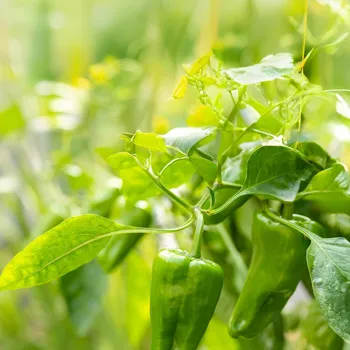Dive into Sustainable Gardening: Transform Your Garden, Transform the Planet! Learn 7 practices to create a greener world
Namaste, readers! Are you looking to add some हरा भरा (greenery) to your life? And
are you concerned about the environment, too? Then, sustainable gardening is just the thing for you! It's all about gardening in a way that helps Mother Earth.
It is good so that there are healthy soil, less wastage, and happy plants. Think of it as giving back to nature while getting fresh veggies, fruits, and flowers in return. It is a win-win situation, truly! Plus, it's easier than you might think.
So, let's dive into seven simple yet effective practices that can transform your garden into a sustainable haven. Get ready to get your hands dirty and make a difference!
Embrace Organic Soil and Composting Magic
Forget those chemical fertilizers and pesticides! Organic gardening starts with healthy soil. This means avoiding synthetic stuff that can harm beneficial microbes and pollute the environment. Instead, focus on building your soil naturally. The best way to do this is through composting.
Gather your kitchen scraps like vegetable peels, fruit cores, and tea bags. Mix them with yard waste like dried leaves and grass clippings. Over time, this mixture decomposes into nutrient-rich compost. This compost acts as a natural fertilizer, feeding your plants and improving soil structure.
Not only does composting reduce waste going to landfills, but it also creates a thriving ecosystem in your garden. You can make your own compost pit or buy a composter from the market. Another way to enhance soil health is by using other organic amendments like cow dung manure or vermicompost.
These add essential nutrients and improve water retention. Remember, healthy soil means healthy plants, less susceptible to pests and diseases. So, give your plants the foundation they deserve with organic soil and the magic of composting! Watch your garden thrive.
Water Wisely: Rainwater Harvesting and Efficient Irrigation
Water is precious, especially in many parts of India. Sustainable gardening emphasizes water conservation. One of the easiest ways to do this is by harvesting rainwater. Set up simple collection systems like barrels or tanks to collect rainwater from your roof.
This water can then be used to irrigate your garden, saving you money on your water bill and reducing your reliance on municipal water sources. When it comes to irrigation, avoid wasteful methods like overhead sprinklers, which lose a lot of water through evaporation.
Opt for efficient irrigation techniques like drip irrigation or soaker hoses. These deliver water directly to the plant roots, minimizing water loss and maximizing absorption. Mulching is another great way to conserve water.
Applying a layer of organic mulch like straw or wood chips around your plants helps to retain moisture in the soil and suppresses weed growth. By implementing these water-wise practices, you can keep your garden thriving while conserving this valuable resource. Think less waste, more greenery.
Companion Planting: A Natural Synergy
Did you know that certain plants can help each other grow? This is the principle behind companion planting. By strategically planting different species together, you can create a natural synergy that benefits all the plants involved.
For example, marigolds planted near tomatoes can repel pests like nematodes, protecting your tomato plants from damage. Basil planted near tomatoes can also improve their flavor.
Similarly, planting legumes like beans or peas near leafy greens can help fix nitrogen in the soil, providing a natural fertilizer for the greens. Companion planting can also help attract beneficial insects like pollinators and predators, which can further enhance your garden ecosystem.
Research which plants are good companions for each other and experiment with different combinations in your garden. You'll be amazed at the results! It's like creating a mini-ecosystem where plants help each other thrive, naturally!
Natural Pest Control: Say No to Chemicals!
Instead of reaching for chemical pesticides, try natural methods to control pests in your garden. Chemical pesticides can harm beneficial insects, pollute the environment, and even pose risks to human health. There are many natural alternatives that are just as effective, if not more so.
One popular method is using neem oil, a natural insecticide derived from the neem tree. Neem oil is effective against a wide range of pests and is safe for beneficial insects. Another option is to introduce beneficial insects like ladybugs and lacewings into your garden.
These insects prey on common garden pests like aphids and caterpillars. You can also use homemade pest control sprays made from ingredients like garlic, chili peppers, and soap. Regular monitoring of your plants is also important.
Catching pest infestations early on can prevent them from becoming a major problem. By using natural pest control methods, you can protect your plants from pests without harming the environment or your health. Keep pests away in natural ways.
Grow Your Own Food: From Seed to Table
One of the most rewarding aspects of sustainable gardening is growing your own food. There's nothing quite like harvesting fresh vegetables and fruits from your own backyard.

Growing your own food reduces your reliance on commercially grown produce, which often travels long distances and is treated with pesticides. When you grow your own food, you know exactly what's going into it. Start small with easy-to-grow vegetables like tomatoes, spinach, and herbs.
You can even grow them in containers if you don't have a lot of space. Consider growing heirloom varieties, which are old-fashioned cultivars that have been passed down through generations. Heirloom varieties often have better flavor and are more resistant to pests and diseases than modern hybrids.
Save seeds from your homegrown vegetables to plant next year. This is a great way to preserve genetic diversity and become more self-sufficient. From seed to table, growing your own food is a truly sustainable and rewarding experience.
There is joy growing your own food so you will never be out of the greens.
Attract Pollinators:
Bees, butterflies, and other pollinators are essential for a healthy garden and a healthy ecosystem. Unfortunately, pollinator populations are declining due to habitat loss, pesticide use, and other factors.
You can help attract pollinators to your garden by planting a variety of flowering plants that provide nectar and pollen. Choose native plants whenever possible, as they are best adapted to your local climate and provide the most food for pollinators.
Plant flowers in groups of the same species to make it easier for pollinators to find them. Avoid using pesticides, as they can harm or kill pollinators. Provide a source of water for pollinators, such as a shallow dish of water with pebbles for them to land on.
You can also create nesting habitat for bees by building a bee house or leaving patches of bare ground for ground-nesting bees. By attracting pollinators to your garden, you'll not only help these important creatures, but you'll also increase the yield of your fruits and vegetables.
Reduce, Reuse, Recycle: The Gardener's Mantra
Sustainable gardening is all about minimizing waste and maximizing resourcefulness. Embrace the Reduce, Reuse, Recycle mantra in your garden. Reduce your consumption of gardening supplies by buying only what you need. Reuse old containers, tools, and materials whenever possible.
Recycle plastic pots, seed trays, and other gardening waste. You can also reuse water bottles as self-watering planters or turn old tires into raised garden beds. Get creative and find new ways to repurpose items instead of throwing them away. Repair broken tools instead of replacing them.
Swap gardening supplies with friends and neighbors. By reducing, reusing, and recycling, you can minimize your impact on the environment and create a more sustainable garden.
(End Note)
So, there you have it! Seven simple practices to transform your garden into a sustainable paradise.
Remember, every small step counts. Start implementing these practices today and make a difference for Mother Earth, one plant at a time! Happy gardening.
AI Generated Content. Glance/InMobi shall have no liability for the content













